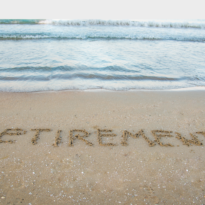More than half of UK adults (56.6%) have or are planning to open a savings account in a bid to achieve financial freedom, new research from Oxford Savings has shown.
Those aged over 55 (15.9%) and between 25 and 35 (12.4%) were the most likely groups to opt for this method.
Just over two fifths (45.3%) said they would open an ISA, while 43% said they plan to organise a more thorough retirement plan. In addition, investing in stocks and shares in a bid to achieve long-term financial goals was cited by 38.7% of respondents.
Respondents also said they were looking to boost their income through extra jobs, with 41% stating they plan to build multiple income streams through side hustles and 31.6% planning on starting their own business.
The research also found that 37.7% of adults are seeking professional financial advice to help them with their financial decisions.
Those living in Greater London were found to be the most prepared to become financially free, with 10.4% of people either planning or having already achieved financial freedom. Their preferred method was a savings account (80%), followed by building multiple income streams and opening an ISA (72%).
Residents in the South East were the second most likely cohort to plan for financial freedom (10.3%), followed by those in the North West (8%). In contrast, people living in Northern Ireland were found to be the least prepared (2.4%).
The results of the survey also revealed that the majority of residents (33.2%) invest between £1-200 per month, followed by a fifth (21%) who put away between £201-500 every month. However, a similar number (19%) said they do not put aside any money, likely due to economic uncertainty and the cost of living crisis.
One in four adults also worry that they are not saving enough every month to reach their financial targets.
Mark Bower-Easton, head of distribution at Oxford Capital, said: “Whilst financial freedom is a broad concept, for many adults in the UK financial freedom refers to being debt free, being able to pay off the mortgage and to be able to confidently cover unexpected costs. For others, it’s feeling in control of their finances, being able to save money, having disposable income available at the end of the month and not worrying about when payday is.”
Bower-Easton said people should look for free business advice, workshops and resources in their local area, which can provide valuable support in areas such as business planning, financing options and legal requirements.






























